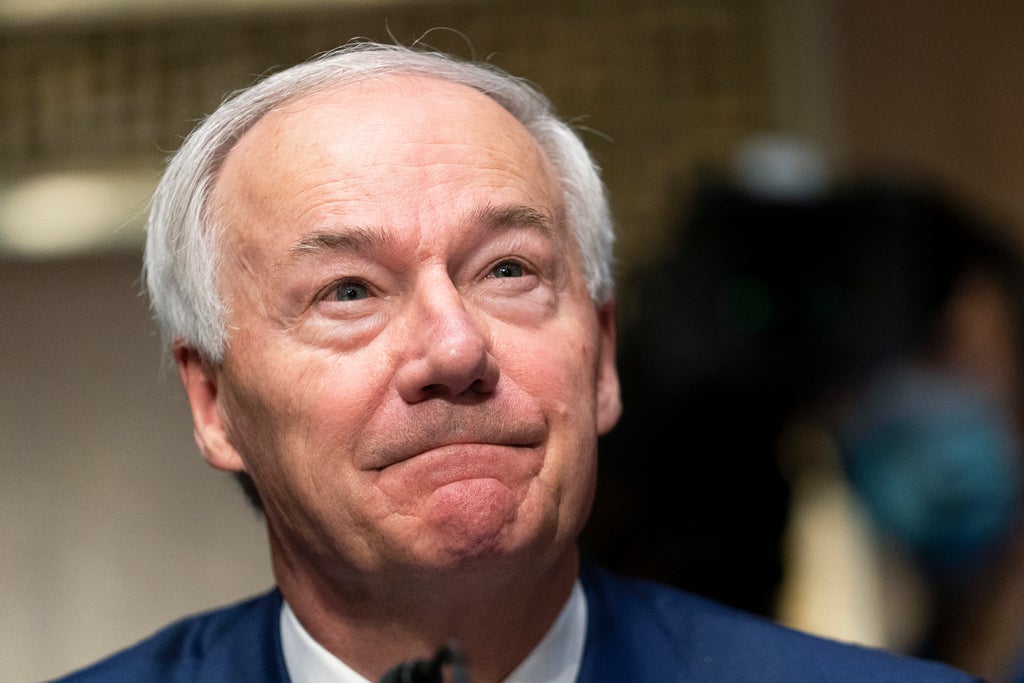
The governor of Arkansas has claimed he disagrees with the state’s ban on abortion in cases of rape or incest – despite the fact he signed the strict bill into law.
Governor Asa Hutchinson admitted in an interview with “State of the Nation” on Sunday that the state’s anti-abortion “trigger law” will lead to “heartbreaking circumstances” if the landmark Roe v Wade ruling is overturned, saying he believes the state’s ban should be “revisited”.
“While it’s still life in the womb, life of the unborn, the conception was under criminal circumstances, either incest or rape. And so, those are two exceptions I have recognized I believe are very appropriate,” he said.
“And what will happen as time goes on, if Roe v. Wade is reversed, these are going to become very real circumstances.
“I think the debate and discussion will be – will continue and that very well could be revisited. I believe that those exceptions are going to be important… overall to save lives because the public understands those exceptions, the importance of it. So I think that will be revisited.”
Arkansas is one of 13 states that have “trigger laws” that would immediately ban abortions in the state as soon as Roe is overturned.
Unlike some states, Arkansas makes no exceptions for pregnancy from rape or incest.
The only exception is in the event of a medical emergency where the mother’s life is at risk.
Women are threatened with facing up to 10 years in prison and fines of up to $100,000 if they break the law.
The strict law was signed by Governor Hutchinson back in 2019 and will instantly go into effect if the Supreme Court overturns Roe.
The governor tried to shirk responsibility for the ban, insisting that he always wanted rape and incest to be exceptions.
“Whenever I signed that law, I did express that I support the exceptions of rape and incest,” he said.
“The life of the mother and rape and incest are two exceptions I believe should have been added that did not have the support in the general assembly.”
While he said he believed it would be “revisited”, CNN’s Dana Bash pressed him that he had already signed the bill into law and that the clock is ticking for him to drive any change, with his term coming to an end in January.
“If you can’t change [the trigger law], that means girls who are still children, 11- and 12-year-olds, might be in that situation in a very real way in just a couple of months,” she said.
“Those are heartbreaking circumstances,” he responded.
“When we passed these trigger laws we were trying… to reduce abortions, but whenever you see that real-life circumstances like that the debate is going to continue and the will of the people may or may not change.”
The governor’s apparent backpedaling after he introduced what is one of the nation’s strictest abortion laws comes as women’s rights to healthcare and abortion access are under threat across America.
Earlier this month, a bombshell draft opinion was leaked from the Supreme Court, revealing that the majority of justices want to strike down Roe v Wade.
The landmark 1973 ruling gave Americans a constitutional right to an abortion.
If Roe is overturned, around half of all US states are expected to ban abortion altogether, with several Republican governors having already signed restrictive bills into law in their states.
This week, Oklahoma passed a law banning all abortions at any stage of pregnancy with the only exception being rape or incest if it has been reported to law enforcement.







